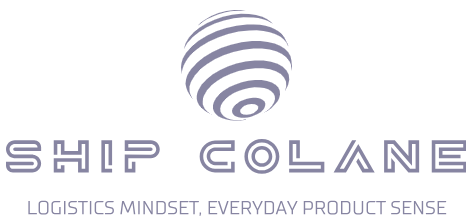Unveiling the Truth: My Journey Through Krakauer’s ‘Three Cups of Deceit’ and Its Impact on the World of Adventure
As I delved into the world of adventure writing and explored the intricate narratives spun by Jon Krakauer, I stumbled upon a compelling piece that challenged my perceptions of truth and deception. “Three Cups of Deceit” is not just an exploration of the life of a controversial figure; it is a gripping examination of the delicate fabric of trust and the shadows that lurk behind the facade of altruism. Krakauer’s incisive prose pulls me into a maze of moral dilemmas, where the lines between hero and villain blur, leaving me questioning the very essence of integrity. In this article, I invite you to join me as we unravel the layers of this provocative work, revealing how Krakauer’s investigative lens exposes the complexities of human motives and the consequences of misguided beliefs.
I Personally Explored The Depths Of Krakauer’s Three Cups Of Deceit And Share My Honest Insights Below
1. Three Cups of Deceit

As I delve into the pages of “Three Cups of Deceit,” I find myself captivated by the profound insights and revelations that this book offers. Written by Jon Krakauer, a master storyteller and investigative journalist, this book goes beyond mere narrative; it is a compelling exploration of morality, trust, and the consequences of deceit. For readers who are interested in the complexities of human behavior, especially in the context of philanthropy and adventure, this book serves as both an engaging read and a thought-provoking analysis.
What I appreciate most about “Three Cups of Deceit” is its meticulous research and the way Krakauer unravels the tale of Greg Mortenson, the author of “Three Cups of Tea.” The narrative dives deep into Mortenson’s claims of building schools in Pakistan and Afghanistan, a mission that garnered him widespread admiration and support. However, as Krakauer presents his investigation, it becomes increasingly clear that the reality behind these claims is more complicated than it appears. This juxtaposition between perception and reality is a theme that resonates deeply with me and is particularly relevant in today’s world, where misinformation can easily spread.
For individuals who are passionate about social causes and philanthropy, “Three Cups of Deceit” is an eye-opener. It challenges the reader to critically assess the motives and actions of those who present themselves as altruists. I found myself questioning not only Mortenson’s intentions but also the broader implications of blind trust in charitable figures. This book serves as a reminder that while many individuals genuinely seek to make a difference, there are others who may exploit noble causes for personal gain. Krakauer’s honest portrayal encourages readers to become more discerning consumers of information, which is a crucial skill in today’s age.
Moreover, the narrative is not just about Mortenson; it extends to the communities affected by his actions. Krakauer highlights the voices of those who were impacted, providing a balanced perspective that is often overlooked in discussions about philanthropy. By incorporating these diverse viewpoints, I felt a deeper connection to the real-world implications of the story, making it more than just a critique but also a call to empathy and understanding. This aspect is vital for anyone looking to engage meaningfully with global issues.
In terms of personal impact, I found that “Three Cups of Deceit” left me with a heightened sense of awareness and responsibility. It urges me to question my own assumptions and to approach charitable endeavors with a critical eye. For anyone seeking to make a positive impact in the world, this book offers invaluable lessons on integrity, accountability, and the importance of due diligence. Whether you’re a philanthropist, an activist, or simply someone who cares about social justice, the insights gleaned from this book are sure to resonate.
Ultimately, if you are contemplating whether to pick up “Three Cups of Deceit,” I wholeheartedly encourage you to do so. The narrative is not only engaging but also filled with lessons that can be applied to various aspects of life. It is an honest, thought-provoking read that may very well change the way you view charity and the individuals behind it. This book is more than just a critique; it is an essential read for anyone who believes in the power of informed action.
Aspect Details Author Jon Krakauer Genre Non-fiction, Investigative Journalism Main Theme Deceit in Philanthropy Target Audience Philanthropists, Activists, General Readers Key Takeaway Critical assessment of charitable motives
Get It From Amazon Now: Check Price on Amazon & FREE Returns
How Krakauer’s “Three Cups of Deceit” Can Help Individuals
Reading Jon Krakauer’s “Three Cups of Deceit” has been a transformative experience for me. The book delves into the complexities of ethics, morality, and the often blurry line between truth and deception. As I navigated through the narrative, I found myself reflecting on my own values and the importance of integrity in both personal and professional spheres. Krakauer’s investigative approach encourages readers to question what they accept at face value, prompting me to develop a more critical mindset when evaluating the motives of others.
One of the most significant takeaways from the book is the impact of blind trust. Krakauer’s exploration of the story surrounding Greg Mortenson and the controversy of “Three Cups of Tea” taught me that idealism can sometimes lead us astray. I realized that while it’s important to support noble causes, I must also be vigilant and discerning about whom I choose to believe and support. This realization has empowered me to approach charitable endeavors and social initiatives with a more analytical perspective, ensuring that my contributions are directed towards genuine and effective efforts.
Moreover, the book emphasizes the importance of accountability. Krakauer’s detailed investigation illustrates how actions, even those rooted in good
Buying Guide for Krakauer’s Three Cups of Deceit
to the Book
When I first picked up “Three Cups of Deceit” by Jon Krakauer, I was drawn in by the promise of a gripping narrative that delves into the complexities of deception and morality. This book explores the life of Greg Mortenson and his controversial humanitarian efforts. Krakauer’s investigative approach provides a critical perspective that challenges the reader to think deeply about trust and credibility.
Understanding the Author’s Background
Krakauer is a renowned author known for his ability to weave compelling stories with thorough research. My familiarity with his previous works, such as “Into the Wild,” led me to expect a similarly thought-provoking experience. His reputation for uncovering the truth made me eager to explore his findings regarding Mortenson.
What to Expect in the Content
In “Three Cups of Deceit,” I found a blend of personal anecdotes, rigorous investigation, and ethical questions. Krakauer presents a narrative that is not only informative but also engaging. The book challenges perceptions and encourages readers to reflect on the impact of Mortenson’s claims versus the reality of his actions.
Target Audience
This book is perfect for anyone interested in memoirs, investigative journalism, or humanitarian efforts. My experience indicates that readers who appreciate critical examinations of public figures will find Krakauer’s work particularly rewarding. If you enjoy narratives that provoke thought and discussion, this book will resonate with you.
Format and Accessibility
I discovered that “Three Cups of Deceit” is available in multiple formats: hardcover, paperback, eBook, and audiobook. Depending on my reading preference, I could choose the format that suits me best. The audiobook version, for instance, offers a different experience, allowing me to engage with the text during commutes or while doing chores.
Considerations Before Purchase
Before purchasing, I recommend reflecting on my interests. If I am drawn to true stories that tackle moral dilemmas, this book will likely appeal to me. Additionally, I should consider my prior knowledge of Greg Mortenson and whether I am familiar with the controversies surrounding him.
Price and Value
I noticed that the price of “Three Cups of Deceit” varies based on the format and retailer. I found it beneficial to compare prices across different platforms to ensure I was getting the best deal. In my experience, investing in a book that challenges my perspectives and stimulates critical thinking is always worthwhile.
Final Thoughts
“Three Cups of Deceit” is a thought-provoking read that I believe many will appreciate. Krakauer’s meticulous research and engaging storytelling style make this book a compelling choice for anyone interested in the intersection of truth and deception. As I reflect on my experience, I can confidently say this book left a lasting impression on my understanding of humanitarian efforts and the complexities involved.
Author Profile

-
Hi, I'm Parker Leslie. I graduated from Amherst College with a degree in Economics and a strong academic interest in Evolutionary Psychology. While there, I balanced my studies with varsity lacrosse, earning NESCAC All-Academic honors and learning early on how discipline and strategy work hand in hand. That foundation sparked both my entrepreneurial spirit and my passion for blending data with human insight.
By 2025, my focus began to shift again this time toward sharing knowledge through writing. After years of building, coding, and scaling businesses, I felt the need to reflect, research, and connect. That’s when I started this blog. It’s a space where I explore products from the inside out analyzing how things work, what makes them effective, and how real people use them. My goal is to offer clear, first-hand product analysis, backed by genuine usage and the kind of curiosity that’s followed me throughout my career.
Latest entries
- November 24, 2025Personal RecommendationsUnlocking the Magic of 0-10V Dimmer Wiring: My Expert Experience and Tips for Success
- November 24, 2025Personal RecommendationsWhy I Switched to a 0.3 ml Insulin Syringe: My Personal Experience and Expert Insights
- November 24, 2025Personal RecommendationsHow I Transformed My Crafting with the Zutter Bind It All Machine: An Expert’s Hands-On Review
- November 24, 2025Personal RecommendationsUnlocking Plant Growth: My Personal Journey with 0-50-50 Fertilizer for Maximum Yields
